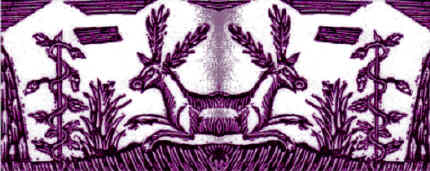
SHIBBOLETH (Clive Powell & Sedayne): N O R T H E R N S T A R
Words & Images
In essence a second volume of HYEM, consisting of the remainder of the traditional songs from Waters of Tyne (1997) book-ended by two further versions of Northern Star & St. John's Chapel from the original Northern Star cassette (1999); this deluxe package comes complete with supplementary disk entitled LAMBS & BANNERS containing two extended improvisations from Winter Matrix (2000) and the live version of Saint John's Chapel (1999) all this for a mere £12 UKP including post & packing: click button below for secure on-line payment...